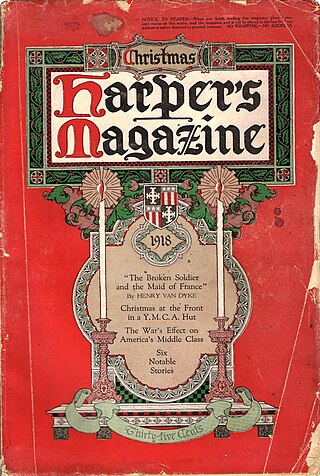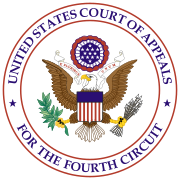An end-user license agreement or EULA is a legal contract between a software supplier and a customer or end-user, generally made available to the customer via a retailer acting as an intermediary. A EULA specifies in detail the rights and restrictions which apply to the use of the software.
The first-sale doctrine is an American legal concept that limits the rights of an intellectual property owner to control resale of products embodying its intellectual property. The doctrine enables the distribution chain of copyrighted products, library lending, giving, video rentals and secondary markets for copyrighted works. In trademark law, this same doctrine enables reselling of trademarked products after the trademark holder puts the products on the market. In the case of patented products, the doctrine allows resale of patented products without any control from the patent holder. The first sale doctrine does not apply to patented processes, which are instead governed by the patent exhaustion doctrine.
The National Association of Realtors (NAR) is an American trade association for those who work in the real estate industry. It has over 1.4 million members, making it one of the biggest trade associations in the USA including NAR's institutes, societies, and councils, involved in all aspects of the residential and commercial real estate industries. The organization holds a U.S. trademark over the term "realtor", limiting the use of the term to its members. NAR also functions as a self-regulatory organization for real estate brokerage. The organization is headquartered in Chicago.
The Anticybersquatting Consumer Protection Act (ACPA), 15 U.S.C. § 1125(d),(passed as part of Pub. L. 106–113 ) is a U.S. law enacted in 1999 that established a cause of action for registering, trafficking in, or using a domain name confusingly similar to, or dilutive of, a trademark or personal name. The law was designed to thwart "cybersquatters" who register Internet domain names containing trademarks with no intention of creating a legitimate web site, but instead plan to sell the domain name to the trademark owner or a third party. Critics of the ACPA complain about the non-global scope of the Act and its potential to restrict free speech, while others dispute these complaints. Before the ACPA was enacted, trademark owners relied heavily on the Federal Trademark Dilution Act (FTDA) to sue domain name registrants. The FTDA was enacted in 1995 in part with the intent to curb domain name abuses. The legislative history of the FTDA specifically mentions that trademark dilution in domain names was a matter of Congressional concern motivating the Act. Senator Leahy stated that "it is my hope that this anti-dilution statute can help stem the use of deceptive Internet addresses taken by those who are choosing marks that are associated with the products and reputations of others".
A clickwrap or clickthrough agreement is a prompt that offers individuals the opportunity to accept or decline a digitally-mediated policy. Privacy policies, terms of service and other user policies, as well as copyright policies commonly employ the clickwrap prompt. Clickwraps are common in signup processes for social media services like Facebook, Twitter or Tumblr, connections to wireless networks operated in corporate spaces, as part of the installation processes of many software packages, and in other circumstances where agreement is sought using digital media. The name "clickwrap" is derived from the use of "shrink wrap contracts" commonly used in boxed software purchases, which "contain a notice that by tearing open the shrinkwrap, the user assents to the software terms enclosed within".

ProCD, Inc. v. Zeidenberg, 86 F.3d 1447, was a court ruling at the United States Court of Appeals for the Seventh Circuit. The case is a significant precedent on the matter of the applicability of American contract law to new types of shrinkwrap licenses that arose with home computing and the Internet in the 1990s, and whether such licenses are enforceable contracts.

A concurrent use registration, in United States trademark law, is a federal trademark registration of the same trademark to two or more unrelated parties, with each party having a registration limited to a distinct geographic area. Such a registration is achieved by filing a concurrent use application and then prevailing in a concurrent use proceeding before the Trademark Trial and Appeal Board ("TTAB"), which is a judicial body within the United States Patent and Trademark Office ("USPTO"). A concurrent use application may be filed with respect to a trademark which is already registered or otherwise in use by another party, but may be allowed to go forward based on the assertion that the existing use can co-exist with the new registration without causing consumer confusion.

Specht v. Netscape, 306 F.3d 17, is a ruling at the United States Court of Appeals for the Second Circuit regarding the enforceability of clickwrap software licenses under contract law. The court held that merely clicking on a download button does not show assent to license terms, if those terms were not conspicuous and if it was not explicit to the consumer that clicking meant agreeing to the license.
Rudder v. Microsoft Corp. [1999] OJ No 3778. is an Ontario Superior Court case that is the leading decision on clickwrap licenses and forum selection clauses in Canada.
Network DVR (NDVR), or network personal video recorder (NPVR), or remote storage digital video recorder (RS-DVR) is a network-based digital video recorder (DVR) stored at the provider's central location rather than at the consumer's private home. Traditionally, media content was stored in a subscriber's set-top box hard drive, but with NDVR the service provider owns a large number of servers, on which the subscribers' media content is stored. The term RS-DVR is used by Cablevision for their version of this technology.
Metropolitan Regional Information Systems, Inc. provides a multiple listing service in the United States. As of mid-July 2010, it served 51,171 real estate professionals in Baltimore-Washington Metropolitan Area including Maryland, Washington DC, Northern Virginia, and parts of West Virginia and Pennsylvania.
Feist Publications, Inc., v. Rural Telephone Service Co., 499 U.S. 340 (1991), was a landmark decision by the Supreme Court of the United States establishing that information alone without a minimum of original creativity cannot be protected by copyright. In the case appealed, Feist had copied information from Rural's telephone listings to include in its own, after Rural had refused to license the information. Rural sued for copyright infringement. The Court ruled that information contained in Rural's phone directory was not copyrightable and that therefore no infringement existed.
A trademark is a type of intellectual property consisting of a recognizable sign, design, or expression that identifies products or services from a particular source and distinguishes them from others. The trademark owner can be an individual, business organization, or any legal entity. A trademark may be located on a package, a label, a voucher, or on the product itself. Trademarks used to identify services are sometimes called service marks.

CoStar Group, Inc. v. LoopNet, Inc., 373 F.3d 544, is a United States Court of Appeals for the Fourth Circuit decision about whether LoopNet should be held directly liable for CoStar Group’s copyrighted photographs posted by LoopNet’s subscribers on LoopNet’s website. The majority of the court ruled that since LoopNet was an Internet service provider ("ISP") that automatically and passively stored material at the direction of users, LoopNet did not copy the material in violation of the Copyright Act. The majority of the court also held that the screening process by a LoopNet employee before the images were stored and displayed did not alter the passivity of LoopNet. Justice Gregory dissented, stating that LoopNet had engaged in active, volitional conduct because of its screening process.

Vernor v. Autodesk, Inc. was a case in the United States District Court for the Western District of Washington regarding the applicability of the first-sale doctrine to software sold under the terms of so-called "shrinkwrap licensing." The court held that when the transfer of software to the purchaser materially resembled a sale it was, in fact, a "sale with restrictions on use" giving rise to a right to resell the copy under the first-sale doctrine. As such, Autodesk could not pursue an action for copyright infringement against Vernor, who sought to resell used versions of its software on eBay. The decision was appealed to the United States Court of Appeals for the Ninth Circuit, which issued a decision on September 10, 2010, reversing the first-sale doctrine ruling and remanding for further proceedings on the misuse of copyright claim. The Ninth Circuit's decision asserted that its ruling was compelled by Ninth Circuit precedent, but observed that the policy considerations involved in the case might affect motion pictures and libraries as well as sales of used software.

Cartoon Network, LP v. CSC Holdings, Inc., 536 F.3d 121, was a United States Court of Appeals for the Second Circuit decision regarding copyright infringement in the context of DVR systems operated by cable television service providers. It is notable for partially overturning the Ninth Circuit precedent MAI Systems Corp. v. Peak Computer, Inc., regarding whether a momentary data stream is a "copy" per copyright law.
Reed Elsevier, Inc. v. Muchnick, 559 U.S. 154 (2010), was a decision by the Supreme Court of the United States involving copyright law. The Court held that failure to register a copyright under Section 411 (a) of the United States Copyright Act does not limit a Federal Court's jurisdiction over claims of infringement regarding unregistered works.
NeighborCity was a residential real estate information and service company that rated real-estate agents in the United States, offering a way for buyers and sellers of homes to compare and evaluate agents. It was based in San Francisco.
Fox Broadcasting Co. v. Dish Network, LLC is a copyright case in which the United States District Court for the Central District of California, by granting partial summary judgment, denied most parts of the copyright claims presented by Fox Broadcasting Company (Fox) against Dish Network (Dish) for its service, a DVR-like device that allowed users to record programming that could be accessed later through any Internet-connected device. The service offered by Dish also allowed users to record any or all Fox's prime-time programs and to automatically skips commercials (AutoHop).

A collective work in the copyright law of the United States is a work that contains the works of several authors assembled and published into a collective whole. The owner of the work has the property rights in the collective work, but the authors of the individual works may retain rights in their contributions. Electronic reproduction of the whole work is allowed, but electronic reproduction of the individual works on their own, outside the context of the work as a whole, may constitute an infringement of copyright.






